“Don’t go crazy. If you want to know me, I live with others. My face is that of the people. If you look for me, look for me in people”; This was what Enrique “Kike” Figaredo – known as the “bishop of wheelchairs” – perceived when, at just 16 years old, he prayed to God to enlighten him and thus discover his vocation.
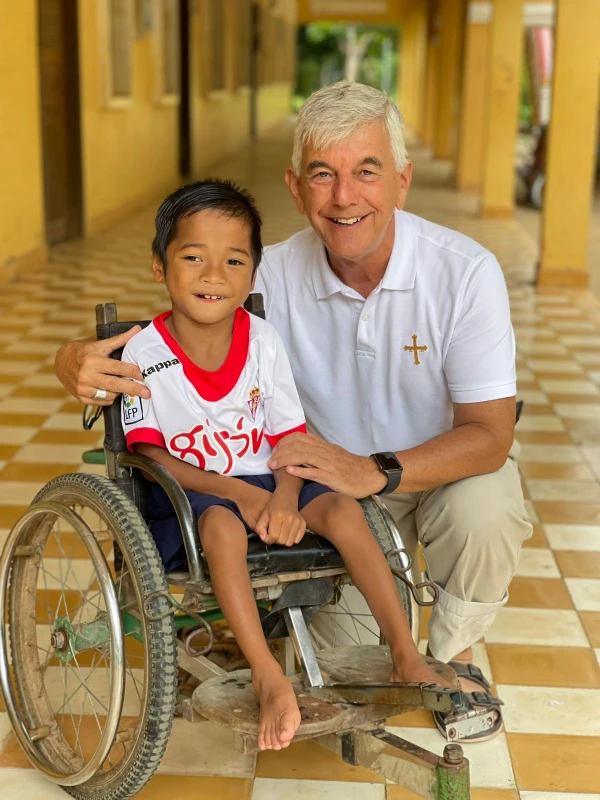
Receive the main news from ACI Prensa by WhatsApp and Telegram
It is increasingly difficult to see Catholic news on social media. Subscribe to our free channels today:
Since that “special illumination” during a Holy Thursday in the Taizé monastery, When he was “looking for Jesus like crazy,” everything changed. The now Jesuit priest and Apostolic Prefect from Battambang (Cambodia) tells ACI Prensa the testimony of a life given to those most in need.
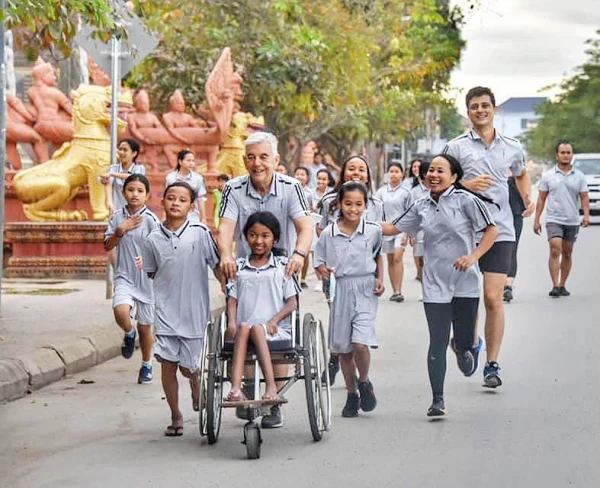
“That day I began to ‘see’, I came out of that prayer enlightened, that is, happy. I began to see people differently, I no longer saw them as strangers and I felt like they were going to talk to me about God.”
What Kike did not yet know is that his missionary soul would take him far from his home in Gijón (Spain), to a country in Southeast Asia that he barely knew how to place on the map: Cambodia.
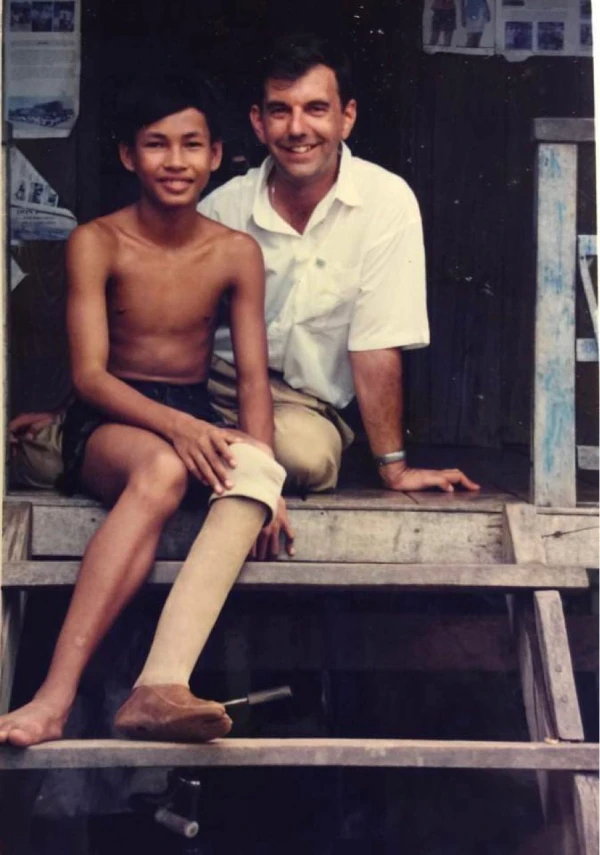
After being ordained a priest, he arrived through the Jesuit Refugee Service to the Cambodian refugee camp in Thailand, and later moved to the Cambodian city of Battambang.
Father Figaredo dedicated his life to caring for the disabled, especially those maimed by the explosions of landmines, a legacy of the genocide perpetrated in the 1970s by the troops of the Communist Party of Kampuchea, better known as the Khmer Rouge, whose consequences They are still felt in society.
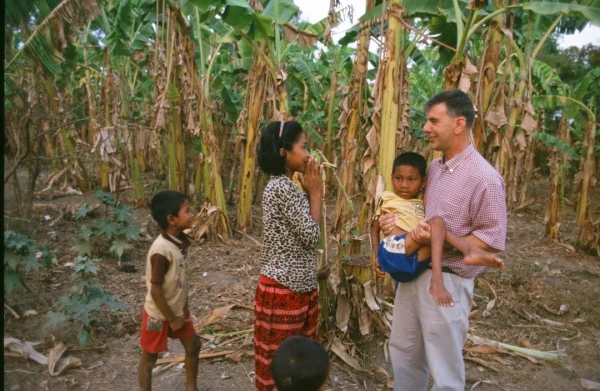
From that first day of his new life, more than 40 years ago, he clearly remembers having seen “the face of God in the children” and how the fear he felt upon arriving “was transformed into peace” when contemplating the joy of the children. children who played “happy, smiling, barefoot. There was life, there was God.”
He also describes, as if time had not passed, the person in charge of the place, who was missing an eye and a leg. “He told me that whatever they needed, they would ask me. Since that afternoon I was never afraid again, “The Lord asked me to trust Him through the language of faith.”
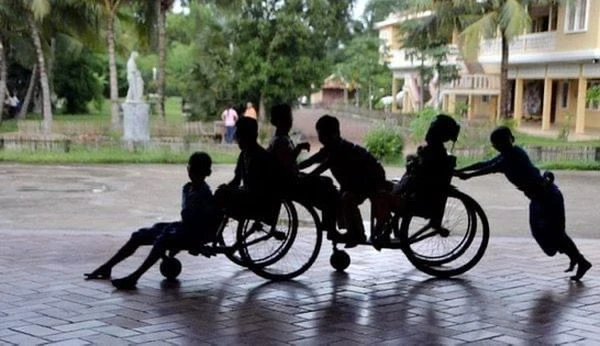
“Kike” Figaredo tells ACI Prensa that these people are not “disabled,” but rather people with “different abilities.” However, he specifies that “they have special needs” and that their care is essential.
Pray more and think less
In a predominantly Buddhist country, Catholics are only “insignificant” in number, but they are very present in social and religious life. Of the faith of those he evangelizes, what stands out above all is their simplicity and deep spirituality, “influenced by aspects that come from Buddhist culture.”
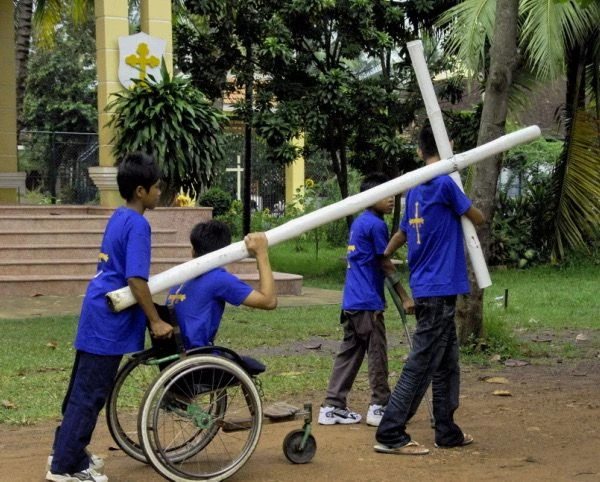
“We come from a more functional society, where we look for results. They know how to enjoy the presence of God in silence, because they believe that reality is inhabited by God, and that is very beautiful,” he adds.
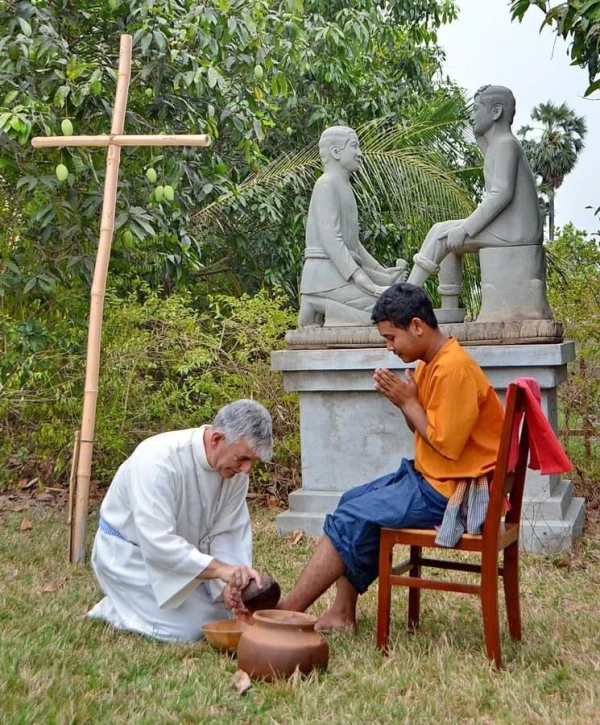
Although, he points out, “the problem in Cambodia is that they believe in too many spirits, including evil ones that can dominate people. That’s why My motto is ‘pray more and think less.'”
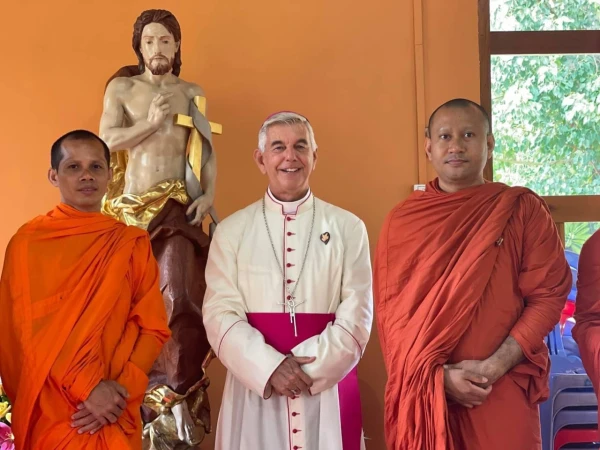
Physical and spiritual help
The Asturian missionary highlights the importance of physically helping these people although, he assures, “the decisive thing is to touch the heart… when you touch their heart with faith, there is a change.”
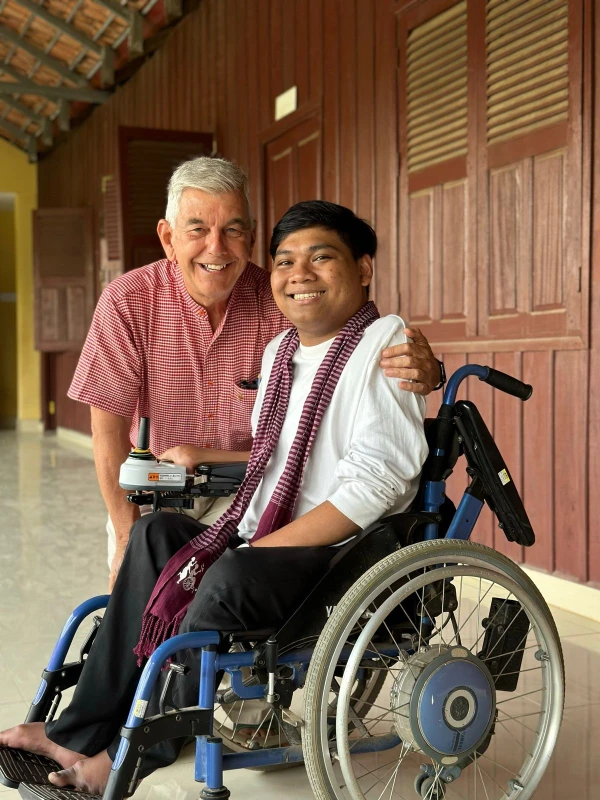
From the Catholic faith, two elements stand out that especially help conversion. On the one hand, the Passion and Resurrection. “We have Passion, but it is not the last word. After the Passion there is Resurrection and that helps them a lot.”
On the other hand, the Spirit of the Lord “is liberating, it sets us free.” This, for the Apostolic Prefect, “has an impressive force. And there are seeds of faith already in the people. When we tell you these things, the Holy Spirit is at work.”
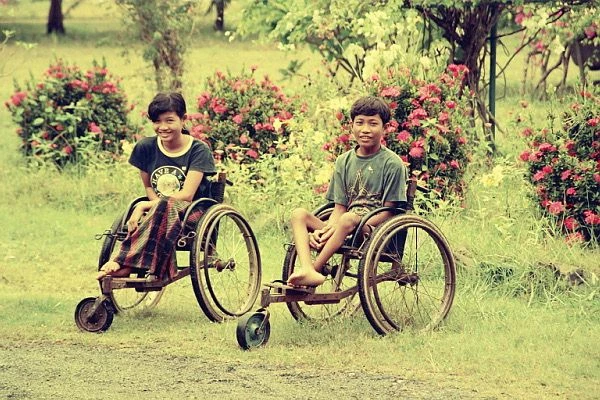
Vary’s conversion
She cannot help but be moved when remembering the conversion of Vary, a Cambodian girl who belonged to an “extremely Buddhist” family and context, but who nevertheless attended catechism and prayed alongside the missionaries.
One day, he went to the Virgin with a special request: that the director of the center for the disabled could become pregnant after a long time of trying.
“Within three days, I was pregnant. So, this girl was baptized with the name Catalina and is now a catechist. She went to pray with faith, seeking a sample of God and committed herself to Him.”
He also says that they named the new creature after Karunawhich means “compassion”, since “he was born through an act of compassion of the Virgin.”
Your projects in favor of those in need
Over the years, he promoted different action projects with the disabled, starting—hand in hand with the NGO Sauce— “because of urgency” and growing little by little with initiatives for development, education and social integration of the most disadvantaged people.
In 1991 he founded Phnom Penh a school for mutilated children, where they also build wooden wheelchairs known as Mekongalluding to the river that crosses Cambodia and five other Asian countries and is one of the longest in the world. Here they welcome vulnerable street children, orphans and disabled children. In Battambang there is also the Center clotheswhere different education projects for children and adult training are developed.
They also have an agricultural and livestock extension, the restaurant The Lonely Tree Caféa cafeteria, a hotel, a textile center where they make Kromas – the traditional Cambodian scarf – and with the brand Mutitaawhere they sell clothing that can be purchased online from Spain. All of these are, according to the Spanish bishop, “small models of social integration.”
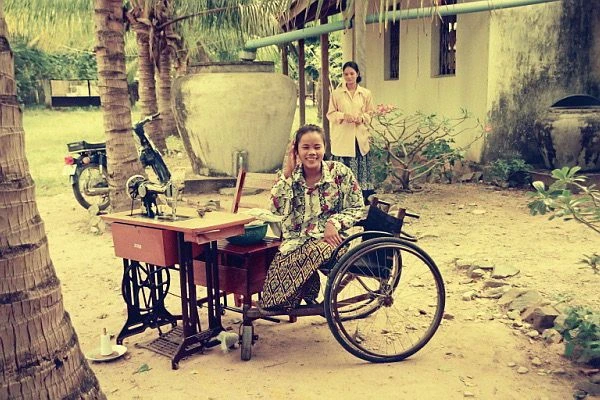
Volunteers from different countries come to the mission every year. Many arrive to help during the summer and the adults usually stay longer, about a year. Then, there are others who only come for a few months and finally end up staying, because these people have something that “gets you”.
A call to personal conversion
Since the beginning of this month of October, Father Figaredo has been in Rome to participate in the Synod of Synodality, where he has had the opportunity for many to “learn to point out Cambodia on the map.”
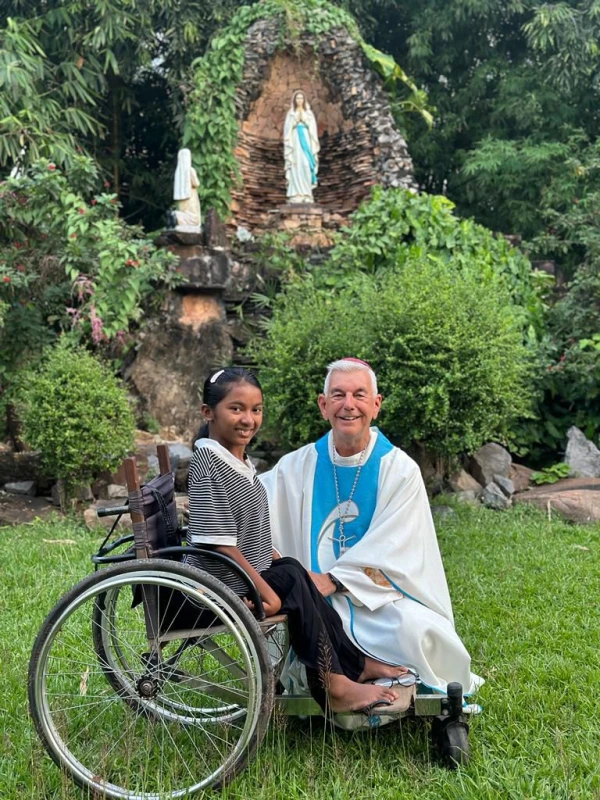
He also expressed to ACI Prensa his desire that the synodal process “make real changes.” According to the Jesuit, the Synod “is calling us to pastoral conversion” and, above all, “personal conversion.”
He specifies that this conversion also requires putting the Holy Spirit at the center, “and not oneself,” in order to also be able to “go out on a mission.” He also emphasizes that the Church “cannot be defined by institutions” and that “listening” is essential in this process.
“The day we all know how to put the Mercy of God at the center, we will see that What defines the Synodal Church is the Trinity, the relationship between Father, Son and Holy Spirit. Until we have that model inserted into our hearts, there will be no synodal Church.”
In this way, he points out that Jesus “spoke about the Kingdom of God and spoke about the mission, and then the Church came.”
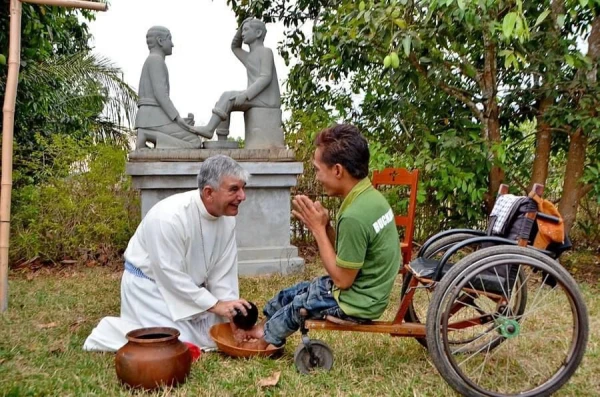
“If we have all these conversions, going through personal conversion, relationship conversion, and conversion towards the Trinity, then I think there will be a before and after,” he adds.
He also referred to this event as “a paradigm shift,” where we go from “static to dynamic.” “The Church is a people that walks and we must accompany it. And this is not going to change in a day, we need time to think more about the churches and less about the institutions, which are a support, but not the identity of the Church. “Identity is the mission inspired by the Trinity.”
A special gift for Pope Francis
The missionary has traveled to the Eternal City with a special gift for the Holy Father: a wheelchair Mekongcharacterized by having three wheels and made of wood. “The Pope already knows that he has a wheelchair waiting for him,” he comments.
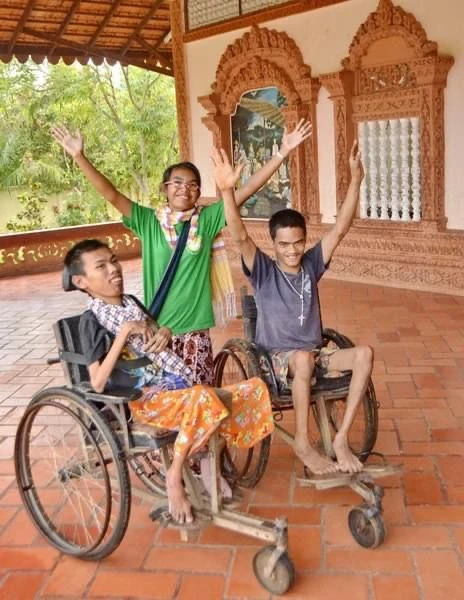
However, he points out that this gift is loaded with meaning. “This wheelchair was invented in Cambodia, it is made with local materials and the wheels are made of bicycle rubber, designed especially for the countryside, not for the city.”
“I think it is very nice that Pope Francis sits in a chair made by disabled people, who have survived the war and who have made wheelchairs for other disabled people.”
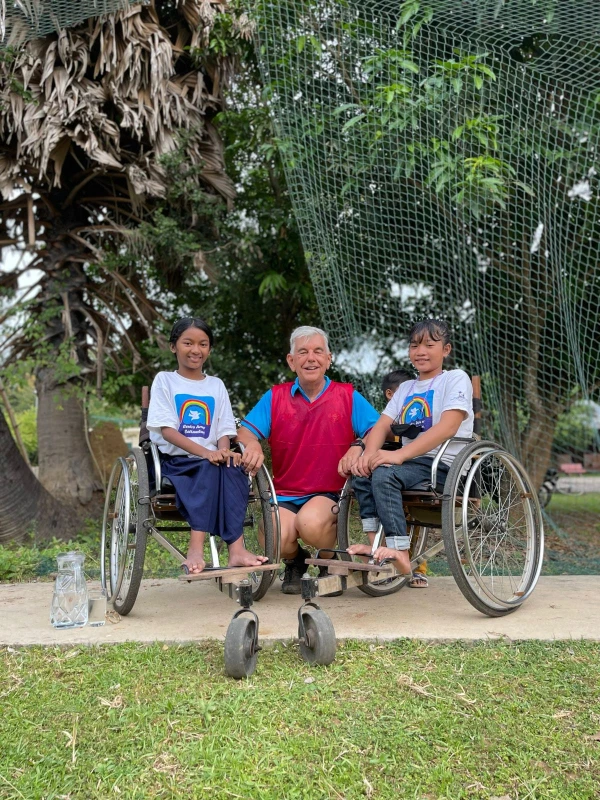
In conclusion, he confesses to ACI Prensa his wish: “May the Pope sit in this chair and from there preach for peace. He is a person with a disability, since he has not been able to walk easily for some time, and he is the world’s great leader for peace. That he sits in the wheelchair of the disabled and preaches from there has great meaning.”

